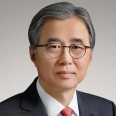*This is an opinion expressed in the Chosun Ilbo Op-ed on June 07, 2021.
In a February 2012 interview with the Washington Post, then Vice-President Xi Jinping mentioned that “the vast Pacific Ocean has ample space for China and the United States” and declared the beginning of a “new type of great power relations.” However, 10 years later in March 2021, at high-level talks in Anchorage, Alaska, the US-China competition has escalated into a struggle over values and political systems. Citing China’s human rights violations in Hong Kong and Xinjiang, economic coercion upon other countries, and cyber-attacks, Secretary of State Antony Blinken said that China’s actions “threaten the rules-based order that maintains global stability.” In response, Yang Jiechi, a member of China’s Politburo, accused the United States of “inciting other countries to attack China” while emphasizing that countries around the world should uphold the “United Nations-centered international system” and the “purpose and principles of the UN Charter.”
Despite President Xi’s declaration that the vastness of the Pacific Ocean would enable US-China coexistence, space alone will not suffice. In the era of globalization and information, the world is getting smaller. Meanwhile, transnational challenges requiring international cooperation such as COVID-19, climate change, and nuclear proliferation are increasing, which require cooperation among powerful countries.
In retrospect, over the past few years, both the United States and China have embraced unilateralism rather than multilateralism. Under the slogan of “America First,” the Trump administration pressed the revision of the North American Free Trade Agreement (NAFTA) and the Korea-US Free Trade Agreement (KORUS FTA). It demanded US military allies inordinately increase their defense burden-sharing, and it walked away from international treaties such as the Paris Climate Agreement.
The United States imposed tariffs on Chinese goods, leading China to take it to the World Trade Organization (WTO). Even though a WTO panel ruled that there was insufficient evidence to justify the American tariffs and recommended it take corrective actions, the United States ignored the ruling, and some even accused the WTO of being “ineffective and in need of overhaul.” However, with the inauguration of the Biden administration, the United States has declared that it will move away from unilateralism and promote multilateralism through international organizations while emphasizing American responsibility.
In comparison, how has China behaved? Chinese unilateralism remains unchanged and even appears to be growing in some regards. Over the deployment of the Terminal High Altitude Area Defense (THAAD) missile defense system, China imposed economic retaliation on South Korea. It is further infringing upon South Korea’s sovereignty by demanding “three no’s”: no further deployments of THAAD, no participation in US-led missile defense, and no trilateral alliance with the US and Japan.
After Australian Prime Minister Scott Morrison called for an international investigation of the origins of COVID-19, China denounced it as a “political maneuver” while China’s Ambassador to Australia warned that Chinese consumers might ask themselves, “Why should we drink Australian wine or eat Australian beef?” China soon cut beef imports by half and imposed tariffs of over 200% on Australian wine.
In the South China Sea, China has violated the United Nations Convention on the Law of the Sea (UNCLOS) by unilaterally claiming a “nine-dash line” and constructing seven maritime features with runways and ports. On Myanmar, whose military has recently faced international criticism for the reported massacre of civilians, China opposed the United Kingdom’s proposal for “further measures” banning trade with military-affiliated businesses. That is an act that hollows out the United Nations and undermines humanity.
South Korea is a victim of Chinese unilateralism. Since normalizing bilateral relations in 1992, the two countries have expanded exchanges and in 2008 upgraded their relationship to a “strategic cooperative partnership.” China is South Korea’s largest trading partner, and China’s role in the denuclearization of North Korea can be significant. However, beyond the experience of cooperation, South Korea-China relations has not always been good. China insists that the Korean War began with a US invasion and that it only intervened to “Resist US Aggression and Aid North Korea.” When South Korea repelled the North Korean aggression in the beginning of the Korean War and was about to unify the peninsula under the UN flag, it was China’s intervention that thwarted reunification.
China’s cooperation is necessary for the denuclearization of North Korea, yet in the UN Security Council North Korea sanctions committee’s reports, China is cited as a country helping North Korea evade sanctions year in, year out. According to its 2021 Report, North Korea exported approximately 2.5 million tons of coal in at least 400 shipments from January to September 2020, with most of these shipments being made through the Chinese port of Zhoushan in Zhejiang province.
Whether it is an ally or economic partner, a powerful country exercising unilateral diplomacy is not desirable. Fortunately, the United States appears to be changing its approach. It is now China’s turn. In 2017, President Xi said that “Korea actually used to be a part of China.” It is concerning whether he still subscribes to a unilateral interpretation of history. In order for the “Chinese Dream” to receive international support, China must seek benefits for the international community, rather than just its own narrow interests.
It is true that South Korea and China have maintained a close relationship historically and culturally, but unilateralism is undesirable for a future-oriented South Korea-China relationship. Rather than extolling China that “China is a high mountain,” South Korea can tell China its policy of commitment to freedom and human rights, an open international system established by the United Nations, and the principles of free trade represented by the WTO. Adhering to these ideas and values is good for both South Korea and China.
* The view expressed herein does not necessarily reflect the views of the Asan Institute for Policy Studies.

 Facebook
Facebook Twitter
Twitter